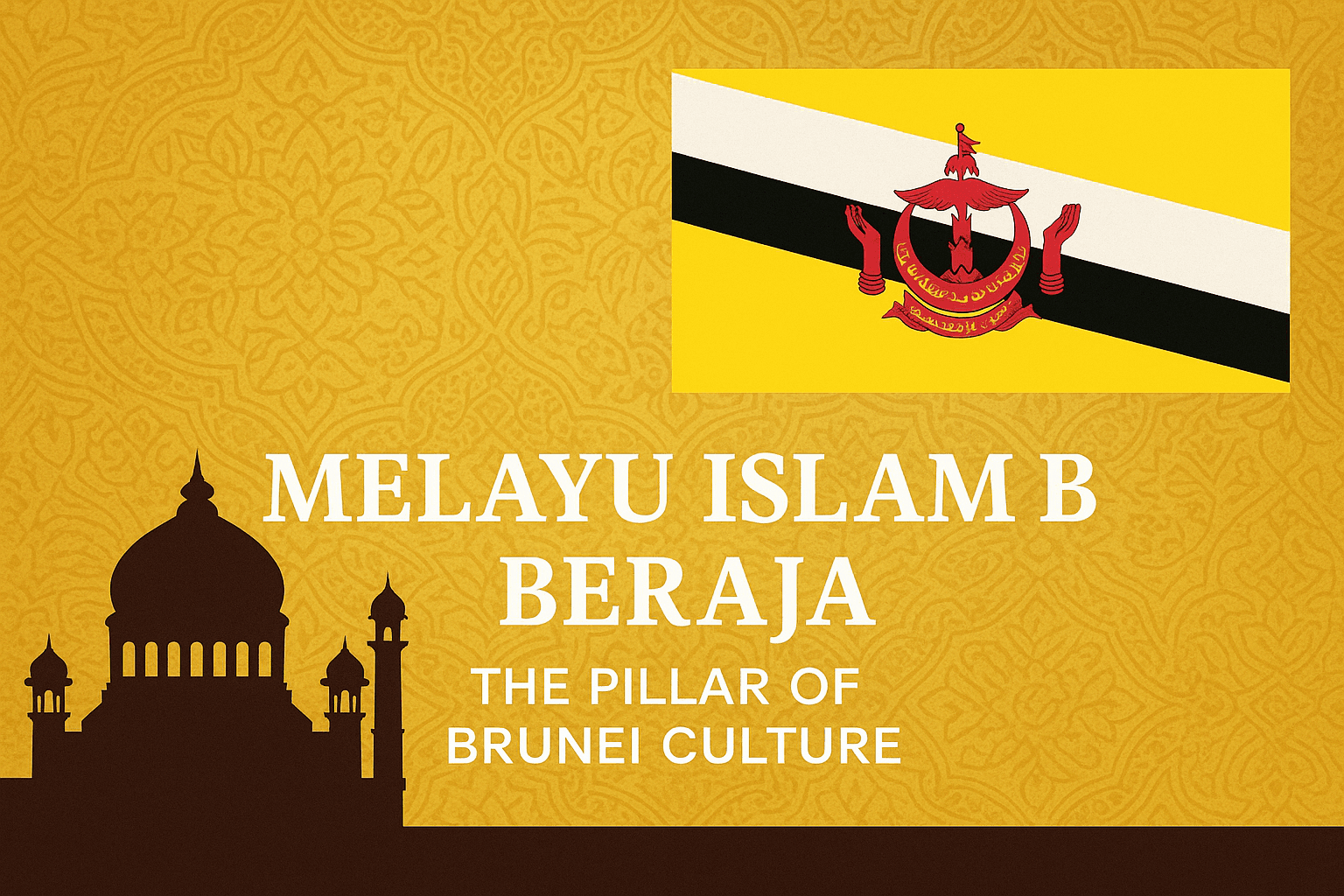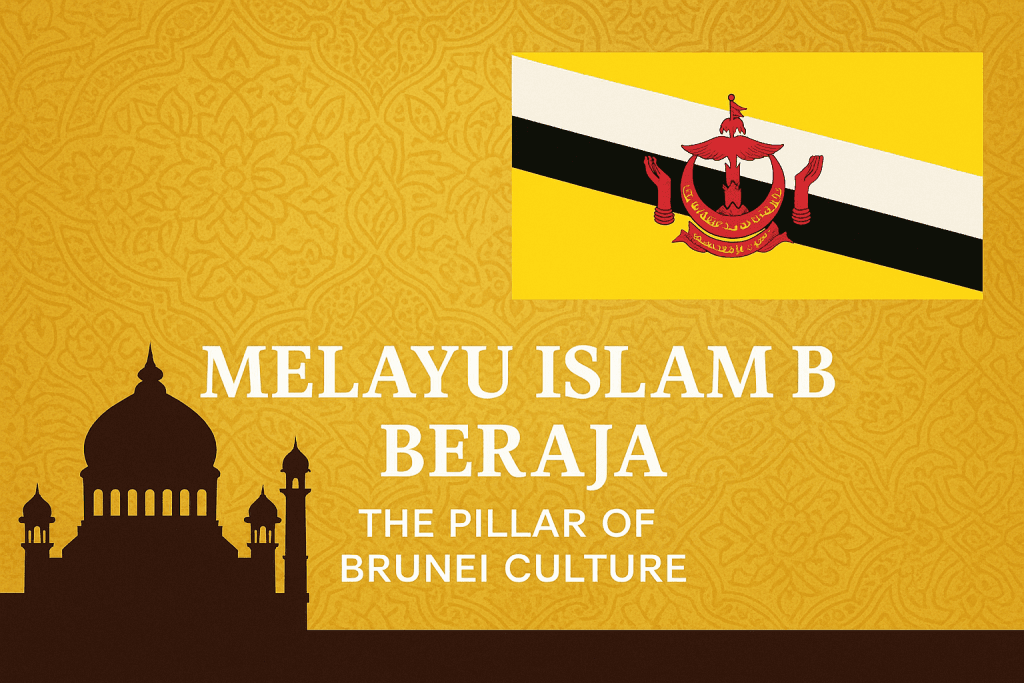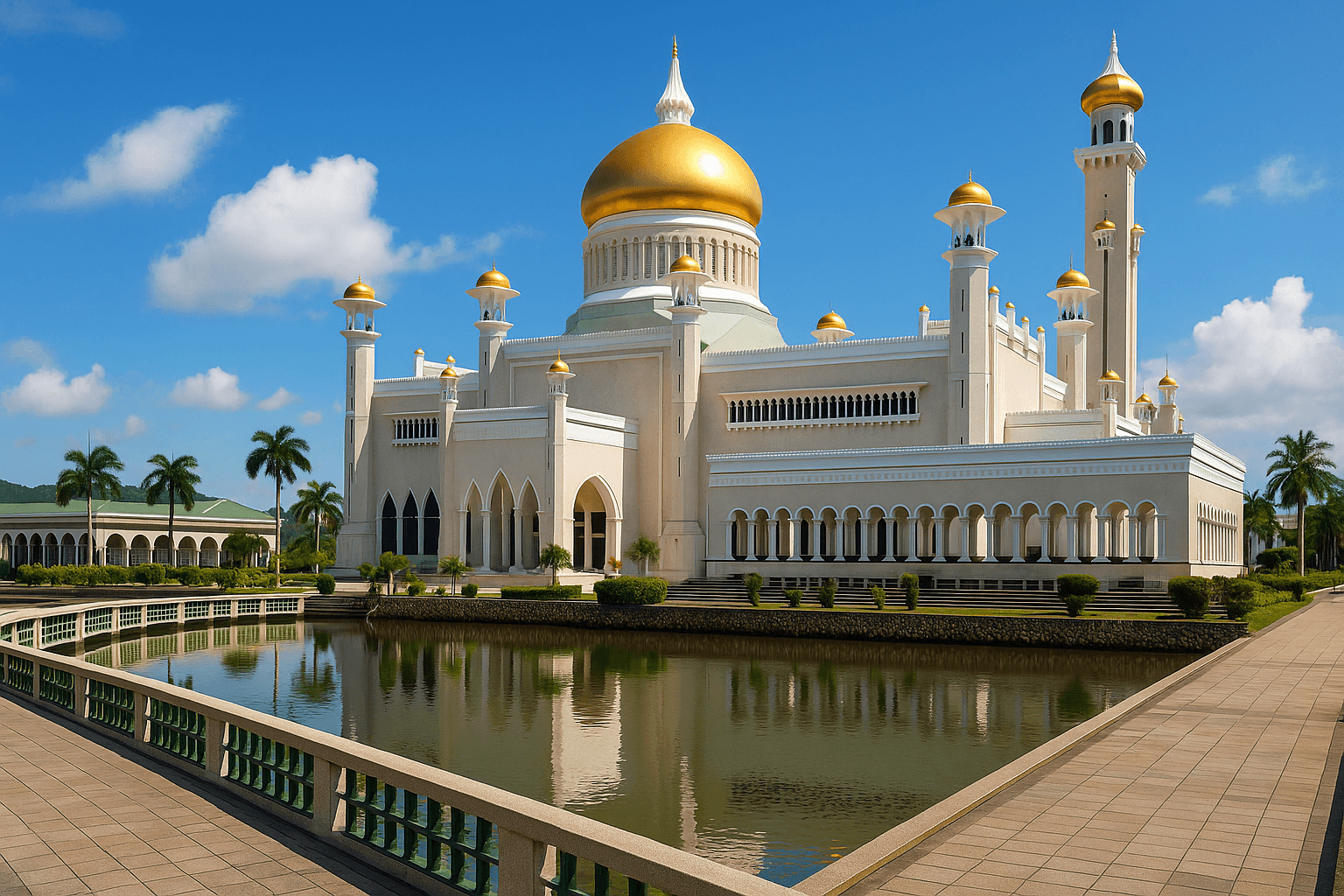Melayu Islam Beraja: The Pillar of Brunei Culture stands as the guiding philosophy that shapes Brunei’s national identity, social harmony, political system, and cultural values. This concept, often shortened to MIB, translates to “Malay Islamic Monarchy.” It integrates the essence of Malay customs, the spiritual depth of Islam, and the respect for monarchy as the ultimate unifying authority. Since its official declaration in 1984, MIB has served as the foundation of Brunei’s modern statehood and remains central to the country’s vision of sustainable cultural and political development.
This philosophy not only functions as a political doctrine but also serves as the moral compass of Bruneian society. It influences every aspect of life, from governance and education to family traditions, community interactions, and religious practices. By exploring its three interconnected elements—Malay, Islam, and Monarchy—we gain insight into why Melayu Islam Beraja: The Pillar of Brunei Culture remains a living heritage and a dynamic framework for national unity.

Historical Context of MIB
The roots of Melayu Islam Beraja: The Pillar of Brunei Culture can be traced back to Brunei’s long history as a powerful Malay Sultanate. Brunei was once a dominant maritime empire in Southeast Asia, stretching influence across Borneo, the Philippines, and beyond. The adoption of Islam in the 14th century brought new layers of spiritual and legal guidance, which merged seamlessly with existing Malay traditions. The monarchy, meanwhile, provided centralized authority and ensured continuity across centuries of change.
When Brunei regained its full independence from British protection in 1984, His Majesty Sultan Hassanal Bolkiah formally declared MIB as the national philosophy. It was designed not only to preserve the kingdom’s historical identity but also to protect it against external ideologies that might threaten national harmony. This makes Melayu Islam Beraja: The Pillar of Brunei Culture both a cultural revival and a forward-looking national strategy.
The Malay Element
Preserving Traditional Heritage
The Malay component emphasizes the cultural heritage of Brunei’s majority ethnic group. This includes language, customs, art, clothing, social etiquette, and family values. From traditional attire such as the Baju Kurung to ceremonies like weddings and royal investitures, Malay culture remains embedded in national identity.
Unity Through Shared Customs
Malay traditions form the glue that holds together Brunei’s multicultural society. Even though Brunei is home to ethnic minorities, the shared Malay cultural framework fosters inclusivity and cohesion. This reinforces the cultural pride that underpins Melayu Islam Beraja: The Pillar of Brunei Culture.
The Islamic Foundation
Religion as a Guiding Principle
Islam is not only the official religion of Brunei but also the ethical framework of governance, education, and daily life. Sharia law, Islamic teachings, and values such as compassion, honesty, and respect guide both public policies and personal behavior.
Integration with Governance
Through Islam, the monarchy reinforces moral legitimacy. Public life is infused with Islamic practices, including prayer times, religious holidays, and social programs rooted in charity and communal care. The Islamic element ensures that Melayu Islam Beraja: The Pillar of Brunei Culture is not simply symbolic but a practical framework shaping social order.
The Monarchical System
Authority and Unity
The monarchy symbolizes continuity and sovereignty. As the supreme leader, the Sultan embodies the will of the people while safeguarding Malay traditions and Islamic law. This creates a unique form of governance that blends heritage with modern statecraft.
A Symbol of Stability
In an era of global uncertainty, Brunei’s monarchy provides stability. Citizens view the Sultan not only as a ruler but as a guardian of cultural and spiritual values. This reinforces why Melayu Islam Beraja: The Pillar of Brunei Culture is inseparable from national identity.
MIB in Education and Youth Development
Education plays a key role in transmitting the values of Melayu Islam Beraja: The Pillar of Brunei Culture. Schools integrate MIB into curricula, teaching students about cultural pride, religious devotion, and respect for monarchy. Youth organizations and community programs emphasize discipline, leadership, and social responsibility, ensuring that the philosophy continues to shape future generations.
MIB in Governance and Law
Brunei’s legal and political frameworks are directly influenced by MIB. Laws reflect both Sharia principles and Malay customs, while governance emphasizes harmony and consultation. The Sultanate ensures that economic development, foreign relations, and domestic policies align with the moral compass of Melayu Islam Beraja: The Pillar of Brunei Culture.
MIB and Social Cohesion
Strengthening Family Bonds
The family unit is central to MIB philosophy. Respect for elders, strong kinship ties, and communal responsibility reflect both Malay and Islamic values. This emphasis on family ensures resilience in the face of globalization and modernization.
Building Community Harmony
Through shared rituals, collective prayer, and cultural events, MIB fosters social cohesion. It provides a framework where individuals see themselves as part of a larger whole, contributing to the peaceful environment for which Brunei is known.
Cultural Expressions of MIB
Traditional music, dance, handicrafts, and architecture all reflect the fusion of Malay heritage, Islamic aesthetics, and monarchical symbolism. Landmarks such as the Omar Ali Saifuddien Mosque or the Istana Nurul Iman Palace embody the grandeur of Melayu Islam Beraja: The Pillar of Brunei Culture in physical form.
MIB in Contemporary Brunei
Even as Brunei modernizes, MIB continues to guide development. From digital policies to cultural preservation, every decision aligns with the philosophy’s principles. The balance of tradition and innovation ensures Brunei can adapt to global challenges while safeguarding its cultural identity.
Global Perception of MIB
Internationally, MIB sets Brunei apart as a nation with a distinctive cultural framework. It offers an alternative model of governance where tradition and religion harmonize with modern progress. The philosophy has become a source of soft power, projecting Brunei’s identity on the world stage.
Conclusion
Melayu Islam Beraja: The Pillar of Brunei Culture is more than a national slogan—it is the soul of Brunei. It encapsulates centuries of history, the depth of Islamic faith, the richness of Malay heritage, and the enduring strength of monarchy. By anchoring governance, education, family life, and social order, MIB ensures that Brunei thrives with cultural pride and moral clarity.
In a rapidly changing world, this philosophy provides stability and direction, demonstrating that tradition and modernity can coexist. As Brunei continues to evolve, Melayu Islam Beraja: The Pillar of Brunei Culture will remain the unshakable foundation upon which the nation builds its future.


